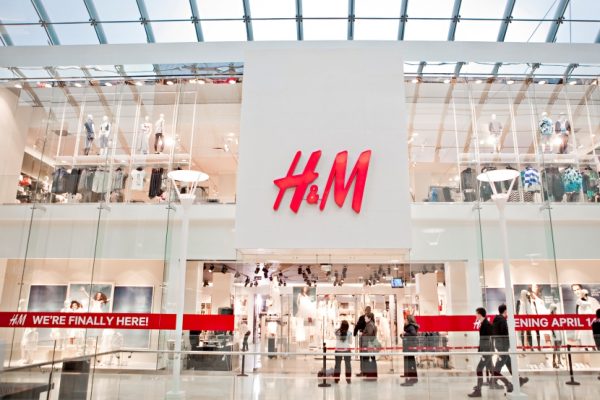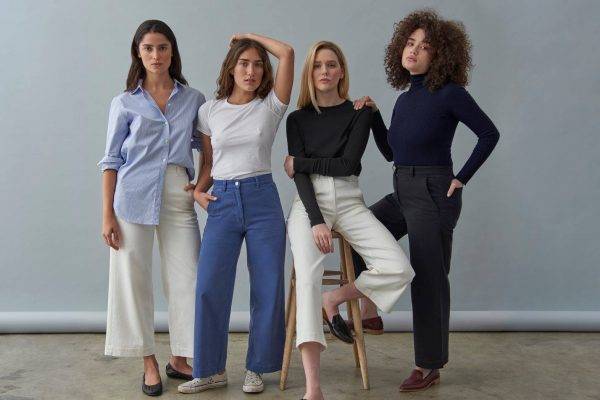In the world of sustainable and innovative fashion, Australia has classically been lagging behind.
With the recent news that Vogue Australia has appointed activist Clare Press as its Sustainability Editor, it’s clear that Australian fashion is trying to turn the ship around.
After attending the first circular fashion conference last week in Sydney, I believe that if the industry puts in the work, it has the potential to create change.
“Australia is one of the world’s second highest consumers of textiles, consuming twice the global average.” PCI Fibres report, 2017
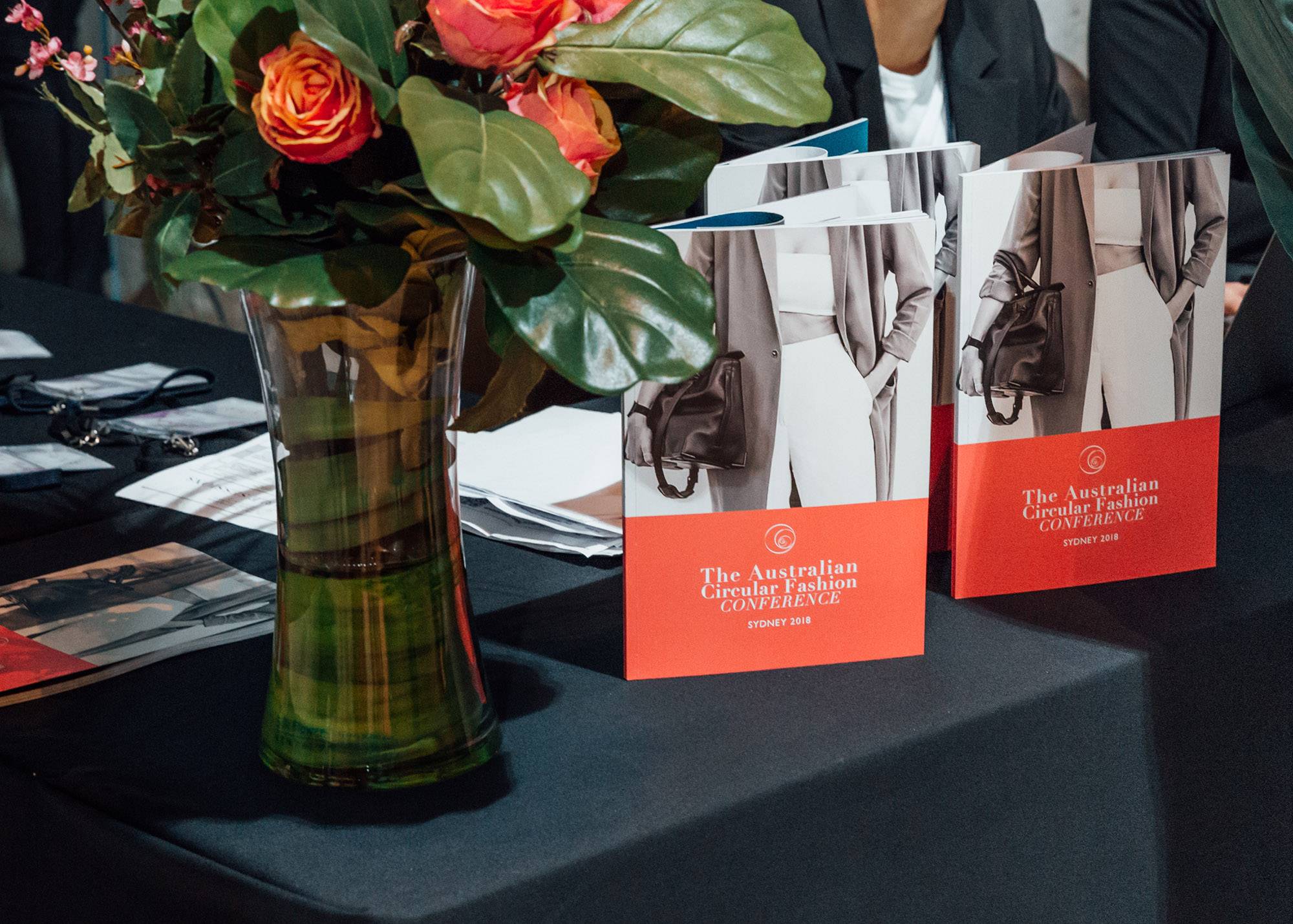
"There are serious limitations to Australia, including a lack of infrastructure for eco fashion and recycling, mixed with a short-sighted government."
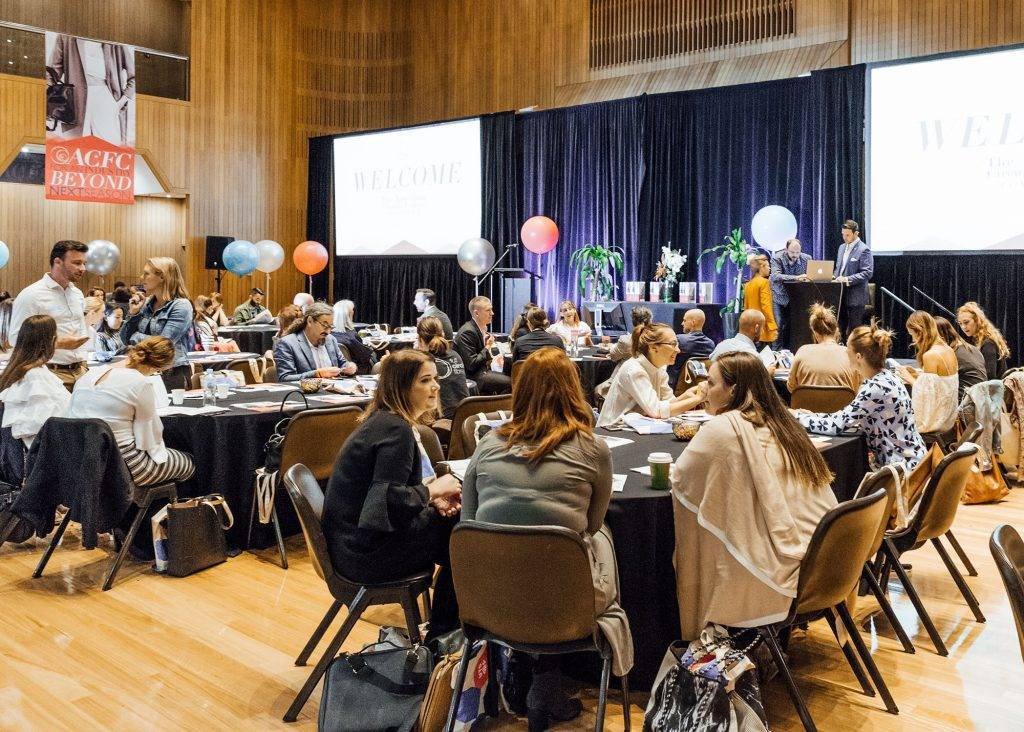
There are serious limitations to Australia, including a lack of infrastructure for eco fashion and recycling, mixed with a short-sighted government.
What Australia does have however is the ability to create big change amongst its fashion hungry consumers. There is also an eclectic mix of experts that can help Australian fashion move forward. The Australian Circular Fashion Conference had a wide variety of panellists giving unique viewpoints, from Dr Clara Vuletich (textile researcher) to Dr Lisa Heinze (author & researcher).
These are my top highlights from the event; let’s hope this time next year action has actually been taken.
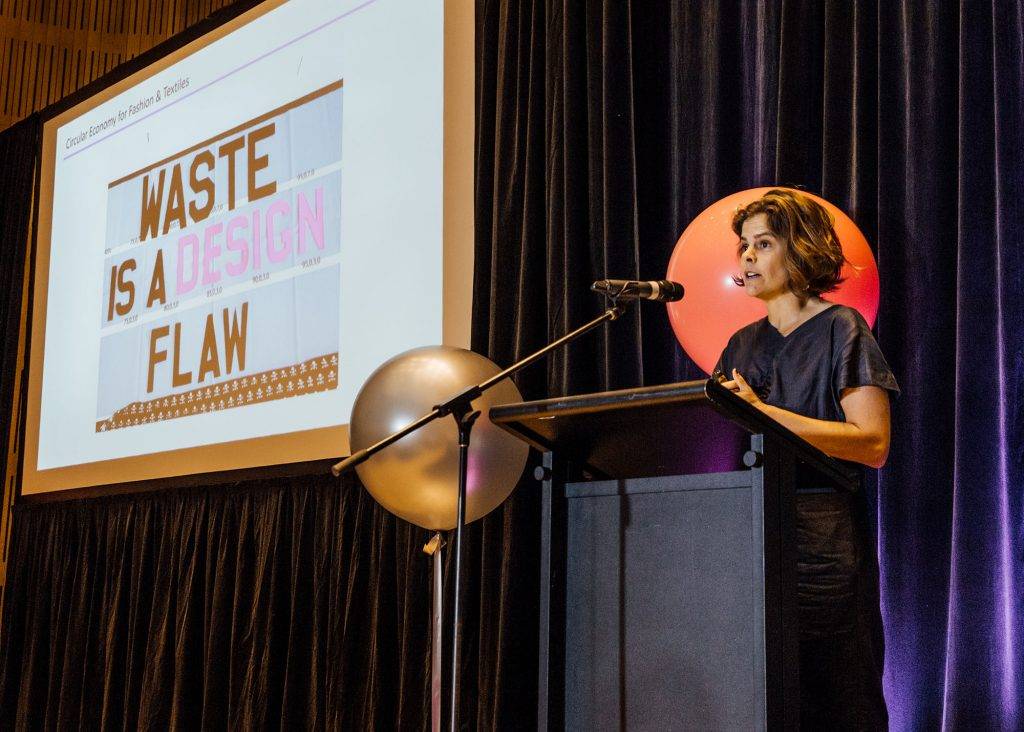
Consumers are changing
There is a hefty amount of research and reports that consumers are changing the market. Andrew Sellick, Head of Environment & Sustainability at Australia Post, emphasized the change that will arise from the millennial market. Reports show that consumers want more ethical and sustainable fashion and are willing to pay more for it. According to Andrew however there is a gap between talk and action, due to a lack of clear information. “Compromise free consumerism” expects brands to do the right thing, however a significant amount don’t and aren’t honest about it. Yianni Giovanoglou, a trend expert from WGSN, had a fantastic presentation also highlighting a similar finding that the demand is there for better fashion and individuals are starting to take action. With consumers changing to value aligned brands, providing accurate information and honest marketing is essential. Journalist and comedian Craig Reucassel had a great point of view, as he ‘clearly doesn’t give a shit about fashion’ (he said whilst pointing at his t-shirt).
“People rely on marketing bullshit, fashion is comparable to food and it needs to change to inform consumers better about what they are actually purchasing. …People need to know that dropping clothing off to a charity bin doesn’t equal guilt free shopping, the majority of it just ends up in landfill anyway.”
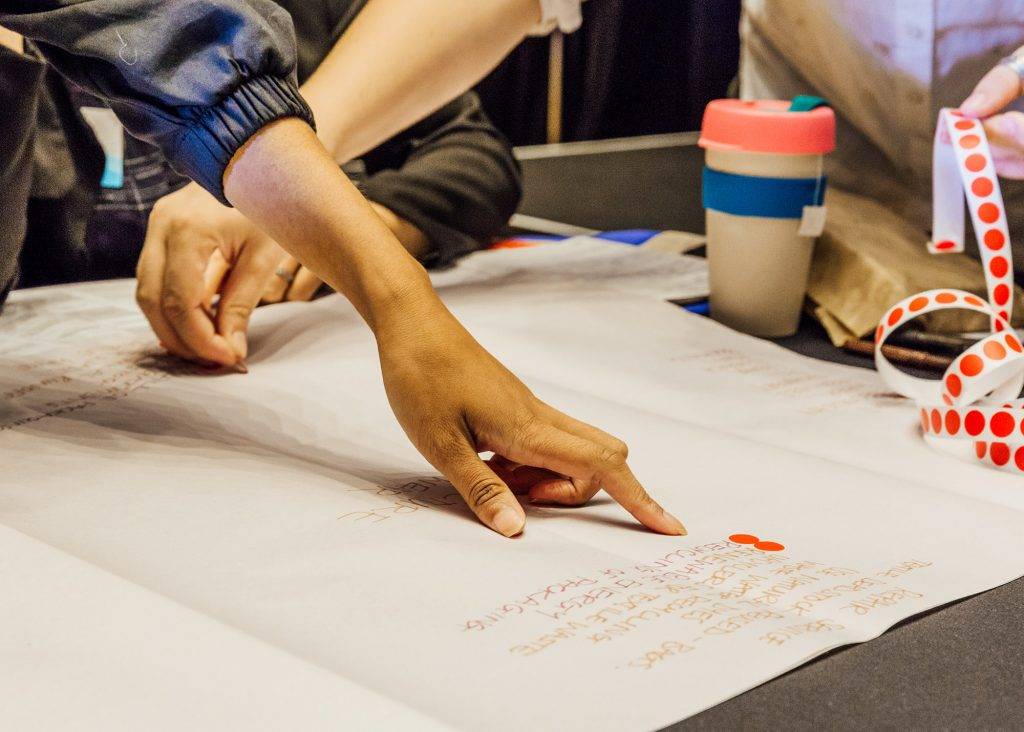
The shopping app Good On You is attempting to rectify this issue of green-washing, and empower consumers with information. The app rates clothing brands based on people, planet and animals. The app even recently caught the attention of British actor Emma Watson for a special Vogue sustainability issue. Co-founder Gordon Renouf spoke about the importance of consumers at the conference, emphasising that 40% of consumers are conflicted whilst shopping for clothing. There’s a real opportunity in that bracket to empower consumers and give people access to information.
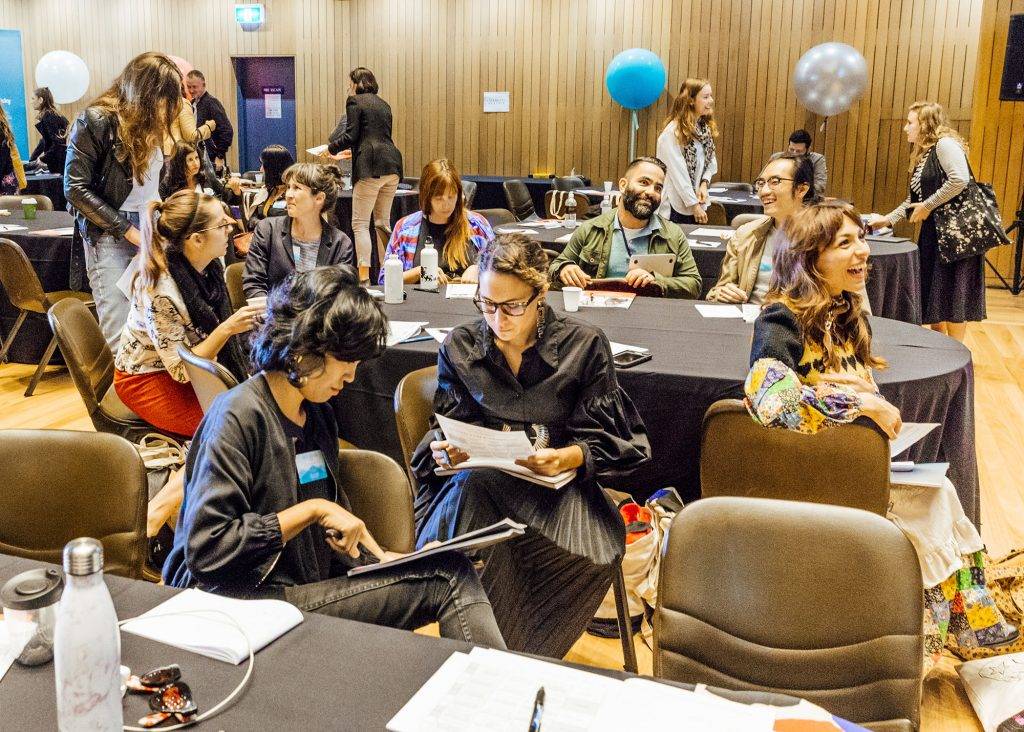
Collaboration & experimental thinking is required
Wendy Cameron is a supply chain expert currently working with General Pants, and for me, her speech won the gold star. Wendy didn’t flatter the Australian fashion industry, she spoke truthfully about the fact that Australian brands need to be more assertive, less safe and think more radically. Wendy heavily emphasised the importance of collaboration, including mainstream brands being part of the conversation. ‘There needs to be more space to talk effectively together, build space for collaboration and group strategy within a brand day to day”.
Dr Clara Vuletich is also a strong advocate for collaboration within the fashion industry; her research has taken her across Europe and Australia and she recently completed her PhD funded by the Swedish Foundation MISTRA. Clara put a spotlight on a new circular fashion model, with partnerships and collaboration emerging from it. She also made the valid point that politics is an important part of moving fashion forward.
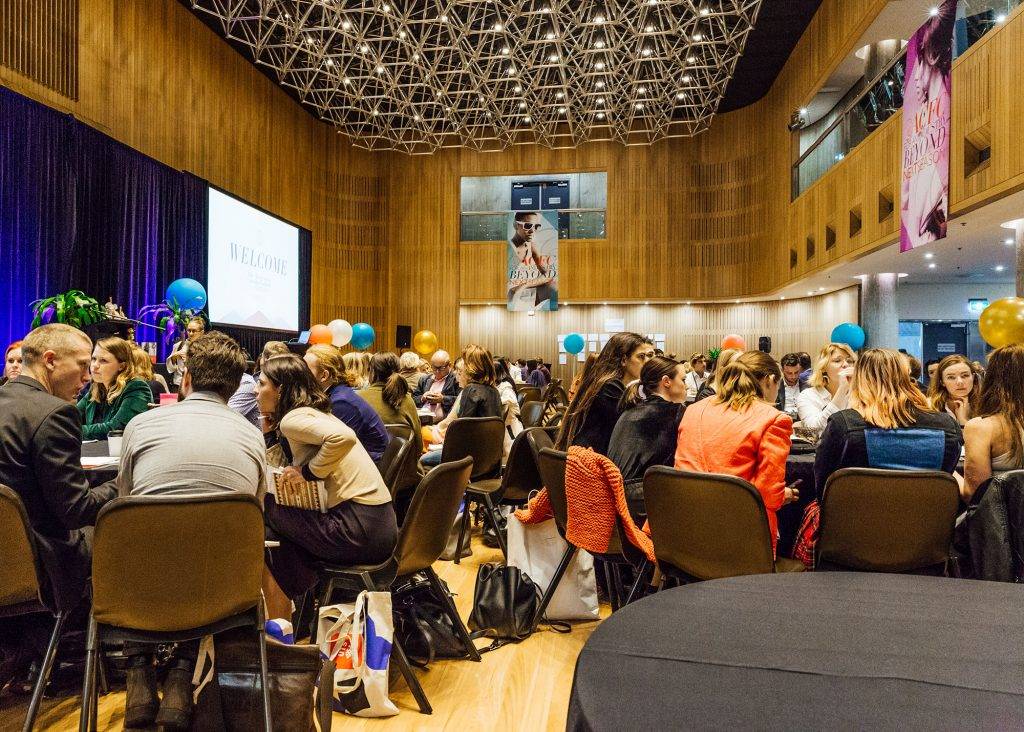
There’s money to be made
Putting environmental and social impacts aside, a business still needs to make money to survive. Thankfully, not only is circular fashion environmentally better, there’s economical benefits. The incredible Jess Miller, Deputy Mayor of Sydney, opened the conference stating that there are funds out there for innovators in this space. Dean James, CEO of Glam Corner, is proof that money is to be made in the circular fashion space, ‘impact and profit can go hand in hand’. The team behind Glam Corner, which is a platform to rent designer clothing, raised investment funds of $4.2 million. The Sydney Morning Herald, in an article from 2016, stated that the sharing economy is worth $500 million annually to NSW.
‘Now is the most exciting time to be an innovator’
Tim Brown, CEO IDEO
